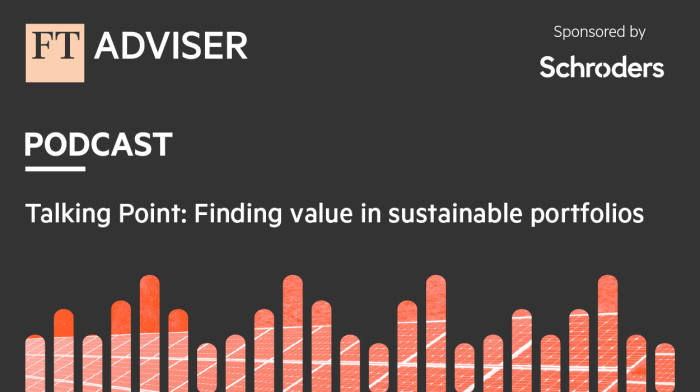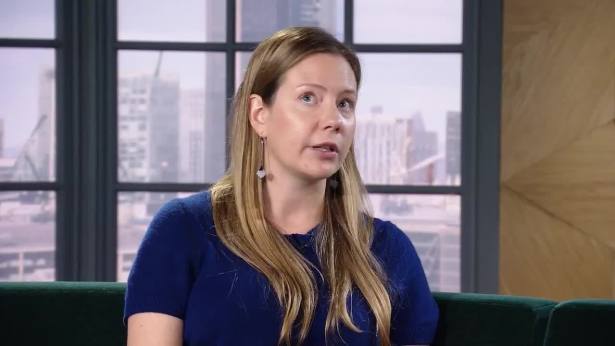
Diversification is the key to avoiding bubbles when investing in ESG assets, according to the guests on the latest edition of the FTAdviser podcast.
The steep rise in popularity of sustainable investment solutions has led to a similar rise in valuations in many of the qualifying asset classes.
On top of this many of the companies which address environmental or social problems tend to be technology businesses - which are more attractive for their growth characteristics rather than for their value.
In this special episode of the FTAdviser Podcast, sponsored by Schroders, special projects editor David Thorpe talks to a panel of experts about where to find value when constructing a sustainable investment portfolio.
He is joined by Roberta Barr, head of ESG in Schroders's value team, Ben Palmer, head of responsible investment at Brooks Macdonald, and John Leiper, chief investment officer at Tavistock, to discuss these issues.
They discuss how investors can avoid bubbles when a sector is attracting the level of flows which the ESG sector has seen recently and how it's possible to find value in this area
Palmer said: “The key is to take a broad view of ESG. If you decide clean energy is what ESG is for example, then you do risk investing in over-valued areas, but if you want ESG investments to look at a broader set of challenges, there then become more investment opportunities, and you can move away from the overvalued areas.”
Leiper added: “There are undoubtedly bubbles in the ESG market. The key is to look at the fundamentals of an asset class. I would also use the example of clean energy. There is a clean energy ETF that went from $700m of assets to $11bn in size in one year, and that is not sustainable, pun intended.
"The share prices in the clean energy sector have since fallen back because while the world will get there, it is not there yet, and the share prices got ahead of the reality. I think one has to take a holistic view, and to look at the fundamentals of an asset class.”
Barr said her focus was on buying “dirt cheap” stocks that also comply with ESG priorities, and this approach, which doesn’t involve taking a specific view on sectors, should also lead to a diversified portfolio.
To listen to the full podcast click play on the player above. FTAdviser's podcasts are also available on Apple Podcasts, Spotify, Stitcher and Acast.
david.thorpe@ft.com







